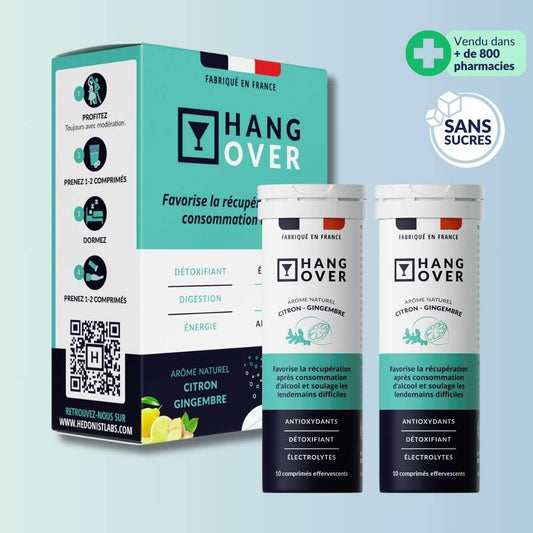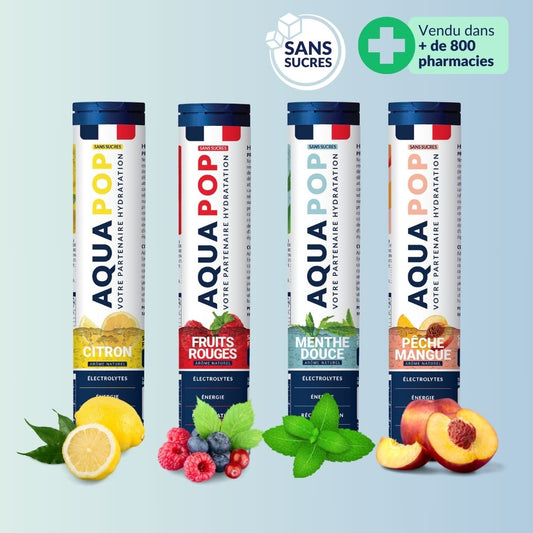Holidays are often synonymous with excess: rich food, lots of alcohol and little sleep. While these moments of pleasure are well-deserved, the aftermath can leave its mark on your metabolism, and for athletes, this can have a direct impact on physical performance.
Alcohol and metabolism: a dual impact
Alcohol is more than just a source of empty calories. When consumed in excess, it interferes with several key metabolic processes. Firstly, your liver, which is essential for processing nutrients, concentrates on eliminating alcohol, setting aside its other metabolic functions. This slows down the digestion and absorption of nutrients needed for muscle and energy recovery.
What's more, alcohol increases dehydration, which reduces the body's ability to metabolize carbohydrates and fats efficiently, diminishing your energy reserves for the next day's training or competition. This dehydration also affects body temperature regulation and blood circulation, both of which are crucial to sporting performance.
Reduced muscle recovery
Alcohol has a direct effect on muscle recovery. After a workout or intense physical activity, the body needs to repair damaged muscle fibers and rebuild tissue. This recovery process is hampered when the body is under the influence of alcohol. Protein production, essential for muscle regeneration, is reduced, which can delay or prevent optimal recovery after exercise.
Alcohol also affects hormone levels, notably testosterone, which plays a key role in muscle development. The drop in testosterone and increase in cortisol (stress hormone) caused by alcohol create a catabolic environment, where the body can even begin to degrade its own muscles.
Energy depletion and reduced performance
The day after a party is often accompanied by a feeling of general fatigue. This is partly due to a drop in glycogen levels (the main source of muscular energy). Alcohol disrupts the replenishment of glycogen reserves, leaving muscles with less fuel to function efficiently during physical activity.
What's more, the quality of sleep, often disrupted after a festive evening, prevents the body from recovering fully. Lack of deep sleep, crucial for cellular repair and hormone production, has a direct impact on motivation, coordination and overall performance during sports training.
How can you limit the effects of the aftermath of a party on your performance?
-
Hydration: Make sure you drink plenty of water before, during and after the party to limit dehydration. Drink electrolyte-rich beverages to restore the body's mineral balance.
-
Essential nutrients: After a festive evening, opt for meals rich in protein and carbohydrates to help muscle recovery and replenish glycogen reserves.
-
Rest and recuperation: Allow yourself time for quality sleep after the party, to allow your body to regenerate.
-
Food supplements: HANG-OVER can be an invaluable ally in helping to reduce the effects of a difficult morning. With its electrolytes and natural ingredients such as vitamin B6, it can support your metabolism and sports performance by facilitating rehydration and muscle recovery.
The aftermath of festivities can have a major impact on your metabolism and sporting performance, due to dehydration, reduced energy and disruption of muscle recovery. However, by taking care to stay well hydrated, adopting a suitable diet and getting plenty of rest, you can minimize these effects. For extra support, a product like HANG-OVER can help you get back into shape quickly and resume your sporting routine more effectively.




